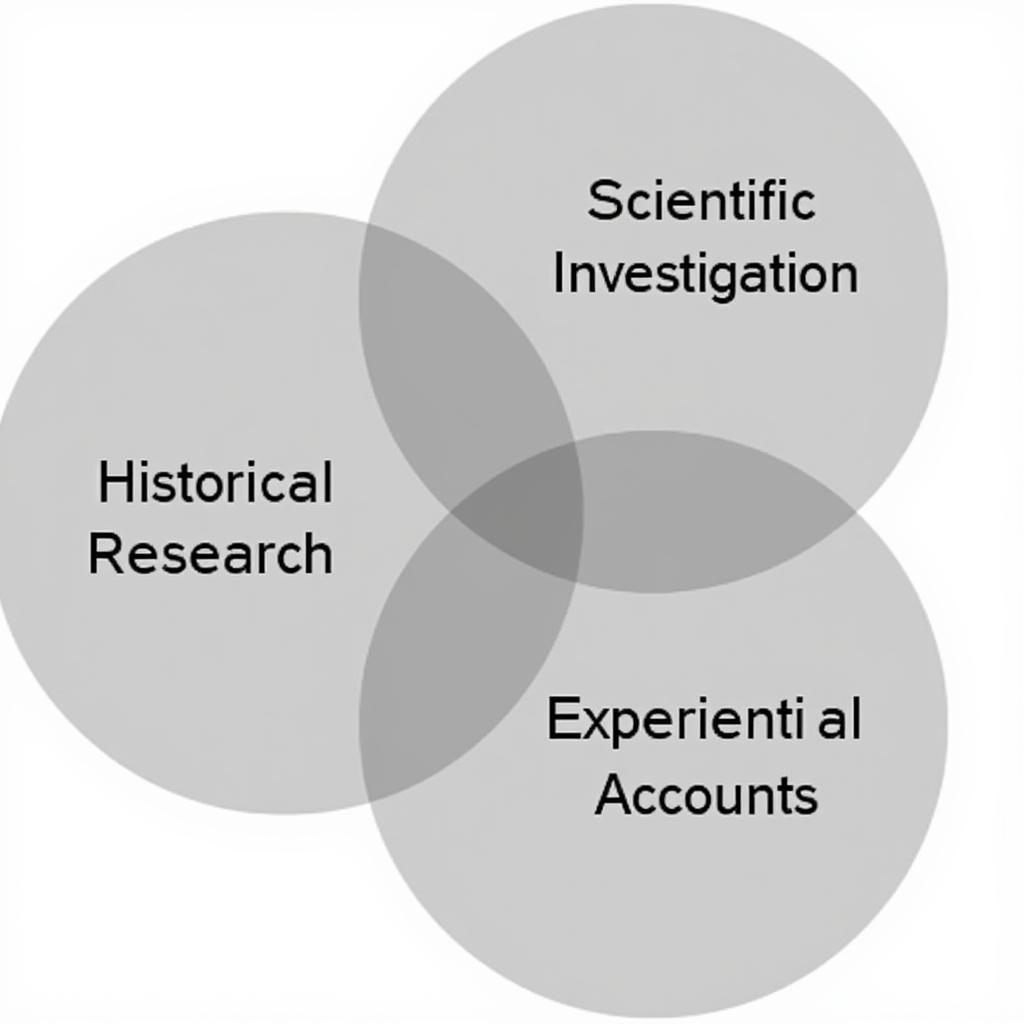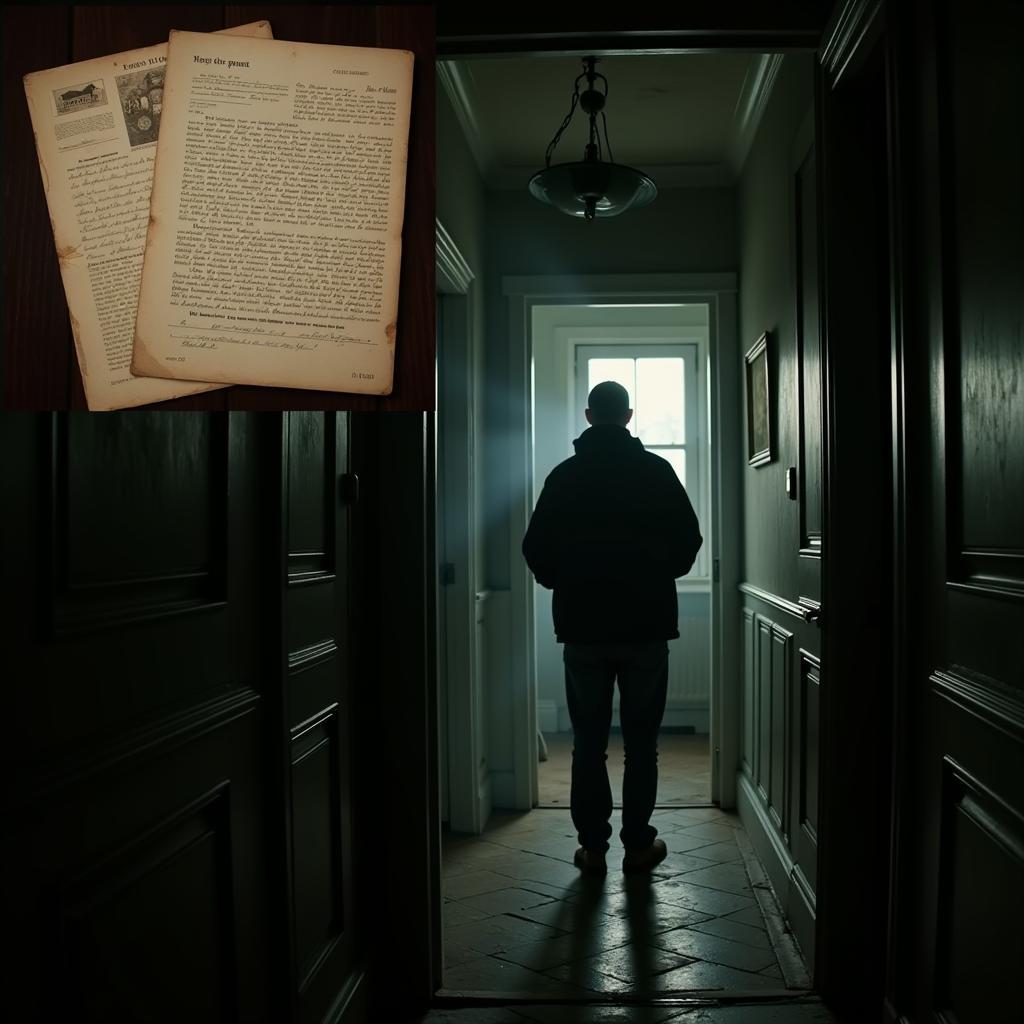Trifecta Research represents a powerful approach to investigating paranormal phenomena, combining multiple methods to achieve a comprehensive understanding. This article delves into the core principles of trifecta research, exploring its applications within the field of paranormal investigation and how it contributes to a more rigorous and evidence-based approach. We’ll explore the key components, the benefits, and the challenges of applying this methodology to the unknown.
What Constitutes Trifecta Research?
Trifecta research in the paranormal context typically involves the integration of three primary investigative branches: historical research, scientific investigation, and experiential accounts. This multi-faceted approach allows researchers to cross-reference findings, identify patterns, and build a stronger case for or against paranormal activity. Historical research helps establish the context and background of a location or phenomenon. Scientific investigation utilizes tools and techniques to measure and analyze potential paranormal activity. Experiential accounts, while subjective, provide valuable human perspectives and can lead to further lines of inquiry.
By combining these three perspectives, researchers can obtain a more holistic understanding of the phenomena under investigation. Instead of relying on a single, potentially biased source of information, trifecta research encourages a more balanced and nuanced approach. It acknowledges the limitations of each individual method and leverages their combined strengths to overcome those limitations.
The Power of Three: Benefits of Trifecta Research
Trifecta research offers numerous advantages, especially when dealing with complex and elusive phenomena like those encountered in paranormal investigations. One key benefit is the enhanced credibility it lends to the research. By incorporating scientific data and historical context, purely experiential observations gain a greater degree of validity. This approach addresses the inherent subjectivity of personal experiences and grounds them within a broader framework of evidence.
Furthermore, the question research hypothesis approach can be incorporated within the trifecta research framework. By forming testable hypotheses based on historical and experiential data, researchers can then design scientific experiments to validate or refute these hypotheses. This systematic approach provides a structure for investigation and fosters a more rigorous and scientific methodology. North Carolina Research Triangle companies, renowned for their scientific innovations, provide a valuable model for the type of interdisciplinary collaboration that can benefit trifecta research.
 Diagram illustrating Trifecta Research in Paranormal Investigations
Diagram illustrating Trifecta Research in Paranormal Investigations
Another significant advantage is the ability to uncover hidden connections and patterns. By examining historical records, researchers may discover past events or circumstances that shed light on present-day paranormal activity. Scientific measurements can then corroborate these historical findings or reveal additional anomalies that might otherwise be overlooked. Finally, experiential accounts can offer a human element, connecting the past and present and providing insights into the potential meaning or significance of the phenomena.
Challenges and Considerations in Trifecta Research
Despite its strengths, trifecta research also presents certain challenges. Balancing the subjective nature of experiential accounts with the objectivity of scientific and historical research requires careful consideration. Researchers must be vigilant in avoiding confirmation bias, where evidence is interpreted to support pre-existing beliefs. Maintaining objectivity and critical thinking are crucial to ensuring the integrity of the research process.
Another challenge lies in the integration of disparate data sources. Historical records may be incomplete or inaccurate, scientific measurements can be influenced by external factors, and experiential accounts can be distorted by memory or suggestion. Researchers must carefully evaluate the reliability and validity of each source of information and acknowledge the potential limitations of their data.
How Can Trifecta Research Be Applied?
Trifecta research can be applied to a wide range of paranormal investigations, from haunted locations to unexplained phenomena. For instance, in investigating a reportedly haunted house, researchers could examine historical records for evidence of past tragedies or unusual occurrences, conduct scientific measurements of electromagnetic fields and temperature fluctuations, and collect experiential accounts from individuals who have experienced unusual activity in the house.
 Applying Trifecta Research in a Haunted House Investigation
Applying Trifecta Research in a Haunted House Investigation
By combining these three lines of inquiry, researchers can develop a more comprehensive understanding of the reported haunting. They can identify potential triggers for the activity, explore possible explanations, and ultimately draw more informed conclusions about the nature of the phenomena.
Conclusion
Trifecta research represents a significant advancement in the field of paranormal investigation. By integrating historical research, scientific investigation, and experiential accounts, researchers can achieve a deeper understanding of the unknown. While challenges exist, the benefits of this multi-faceted approach far outweigh the difficulties. Trifecta research provides a pathway to a more credible, nuanced, and evidence-based exploration of the paranormal world.
FAQ
- What is the core principle of trifecta research? Combining historical research, scientific investigation, and experiential accounts.
- What are the benefits of using trifecta research? Enhanced credibility, uncovering hidden connections, and a more holistic understanding.
- What are some challenges of trifecta research? Balancing subjectivity and objectivity, integrating diverse data sources.
- How can trifecta research be applied in a real-world scenario? Investigating haunted locations, studying unexplained phenomena.
- Why is trifecta research important for paranormal investigations? It offers a more rigorous and evidence-based approach.
- How does trifecta research improve the credibility of paranormal investigations? By grounding experiential accounts with historical and scientific data.
- What role does the question research hypothesis play in trifecta research? It guides the scientific investigation by formulating testable predictions.
See also: question research hypothesis and north carolina research triangle companies.
Need help with your Paranormal Research? Contact us 24/7 at Phone: 0904826292, Email: research@gmail.com or visit us at No. 31, Alley 142/7, P. Phú Viên, Bồ Đề, Long Biên, Hà Nội, Việt Nam.